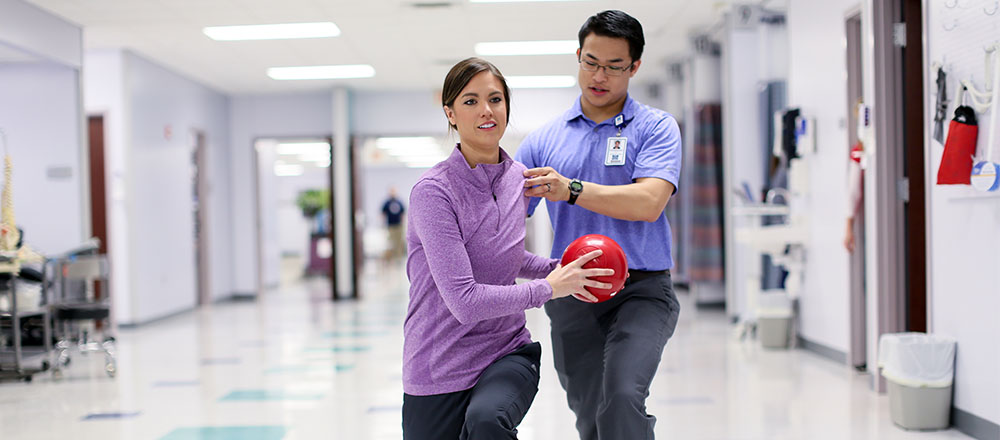Eat, Move, Heal: The Power of Prehabilitation Before Surgery
May 12, 2025By: Joel Francis
Categories: Rehabilitation Services, Your Wellness

Surgical rehabilitation to restore mobility, function and well-being after a procedure can be traced back centuries. Less established is prehabilitation, steps patients can take before a procedure to aid in recovery.
A recent study in The BMJ, formerly known as the British Medical Journal, found that simple steps like exercising, eating well and staying hydrated can significantly affect how quickly you recover.
Jason Calder, PT, CSMT, TPS, a physical therapist with North Kansas City Hospital’s Physical Therapy and Sports Medicine at Creekwood Commons, explains prehabilitation is building strength before surgery.
“Think of it like training for a big event,” he said. “If your body is stronger before surgery, it will recover better afterward.”
Studies show that patients who do prehab can spend fewer days in the hospital, experience fewer complications and recover more quickly. Even just a few weeks of preparation can help.
“The good news is that even just a week or two of healthy eating and exercise habits can bring positive benefits,” said Jason. “But if you have more time—four to six weeks or even a few months—that’s even better.”
Starting out, Jason recommends light cardiovascular exercise, such as an exercise bike, water aerobics or even just going for a walk. The idea is to get the heart rate elevated for 10 to 20 minutes a day, then build from there. At the same time, he recognizes the instinct to avoid moving the part of the body scheduled for surgery.
“On a certain level, it makes sense. If something is hurt or hurting, we want to rest and protect it,” Jason said. “On the other hand, if someone is getting a joint replaced, that joint is going to be stiffer and the muscles around it are going to be weaker, making it harder to use assisted devices after surgery.”
Lindsey Robinson, MS, RDN, LD, a registered dietitian at NKCH, encourages patients scheduled for surgery to add a moderate amount of protein with each meal or snack. Good sources include lean beef, chicken, turkey, fish, beans, eggs and dairy products like yogurt and cottage cheese.
“Protein helps with tissue repair and building the muscle mass you'll need post-op,” Lindsey said. “Aim for 10 to 30 grams per meal or per snack as your body can only utilize so much protein at one time.”
But protein isn’t the only nutrient that matters. Lindsey encourages patients to eat a variety of foods, including fruits, vegetables and whole grains. Drinking water is also key, as hydration helps with digestion, circulation and overall recovery.
“Your body will need more nutrition overall and more calories because you're more active and your wounds are also healing,” Lindsey said. “These foods give your body the vitamins and energy it needs to heal.”
Prehabilitation isn’t just about eating well and staying active—it’s also about setting yourself up for a smooth recovery. Prepare nutritious meals in advance that can be easily reheated and organize your home to ensure a comfortable, clutter-free recovery space for easy navigation.
“The less stress you have after surgery,” Lindsey said, “the smoother your recovery will be.”
If you’re not sure where to start, talk to your doctor. NKCH offers physical therapy, nutritional guidance and support programs to help patients prepare for surgery.
As Jason confirmed, “A little effort before surgery can make a big difference afterward.”



